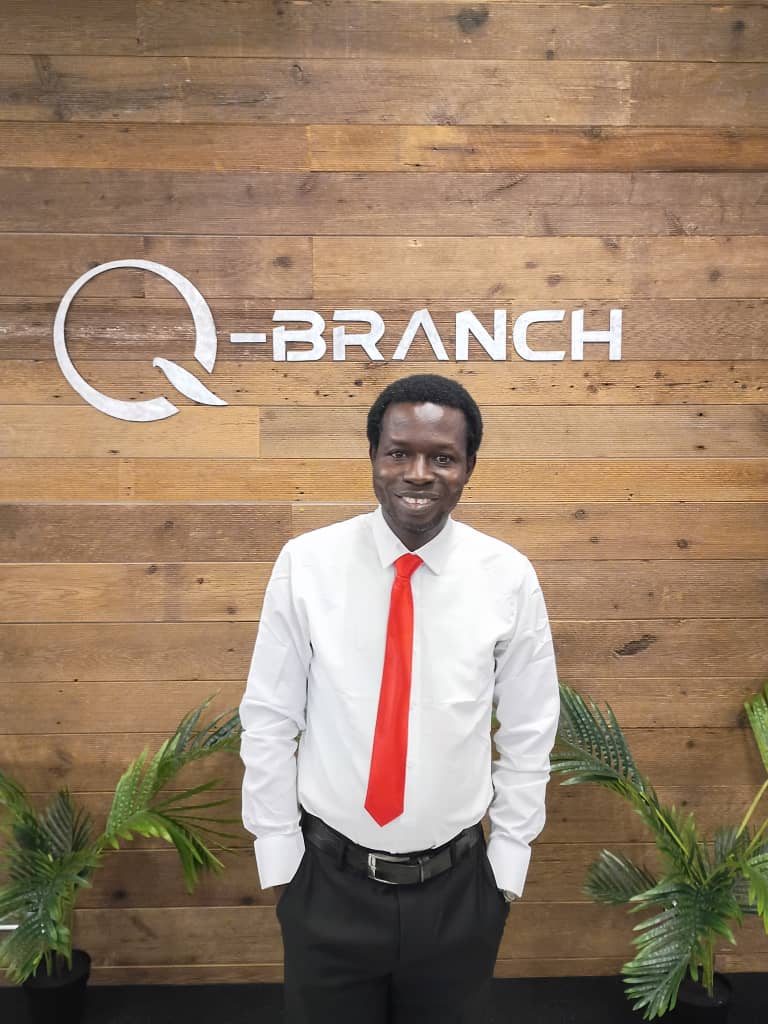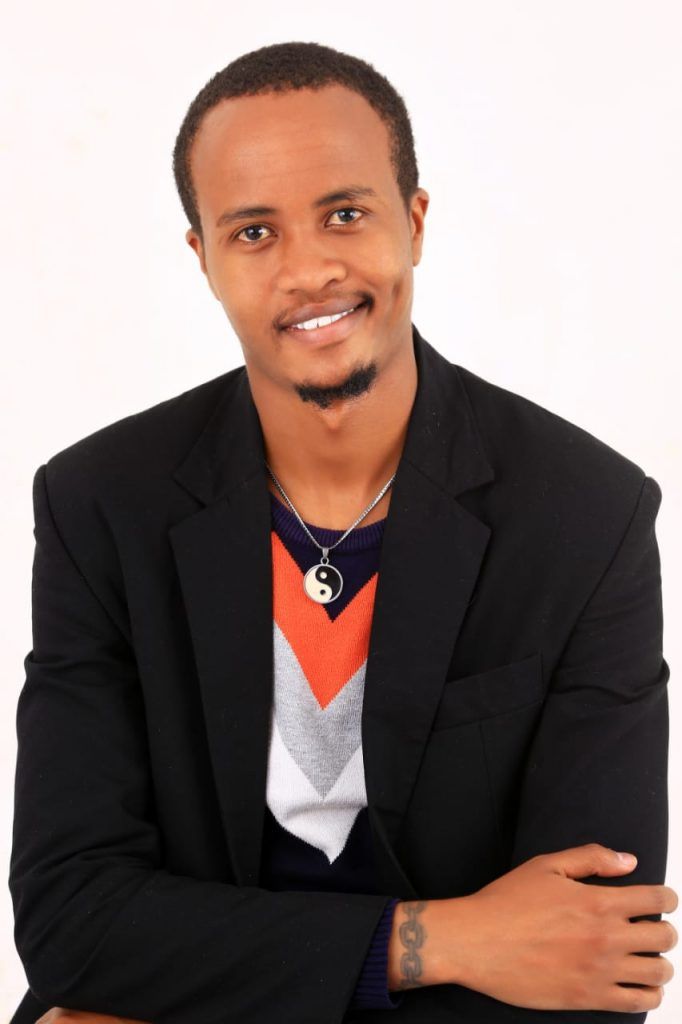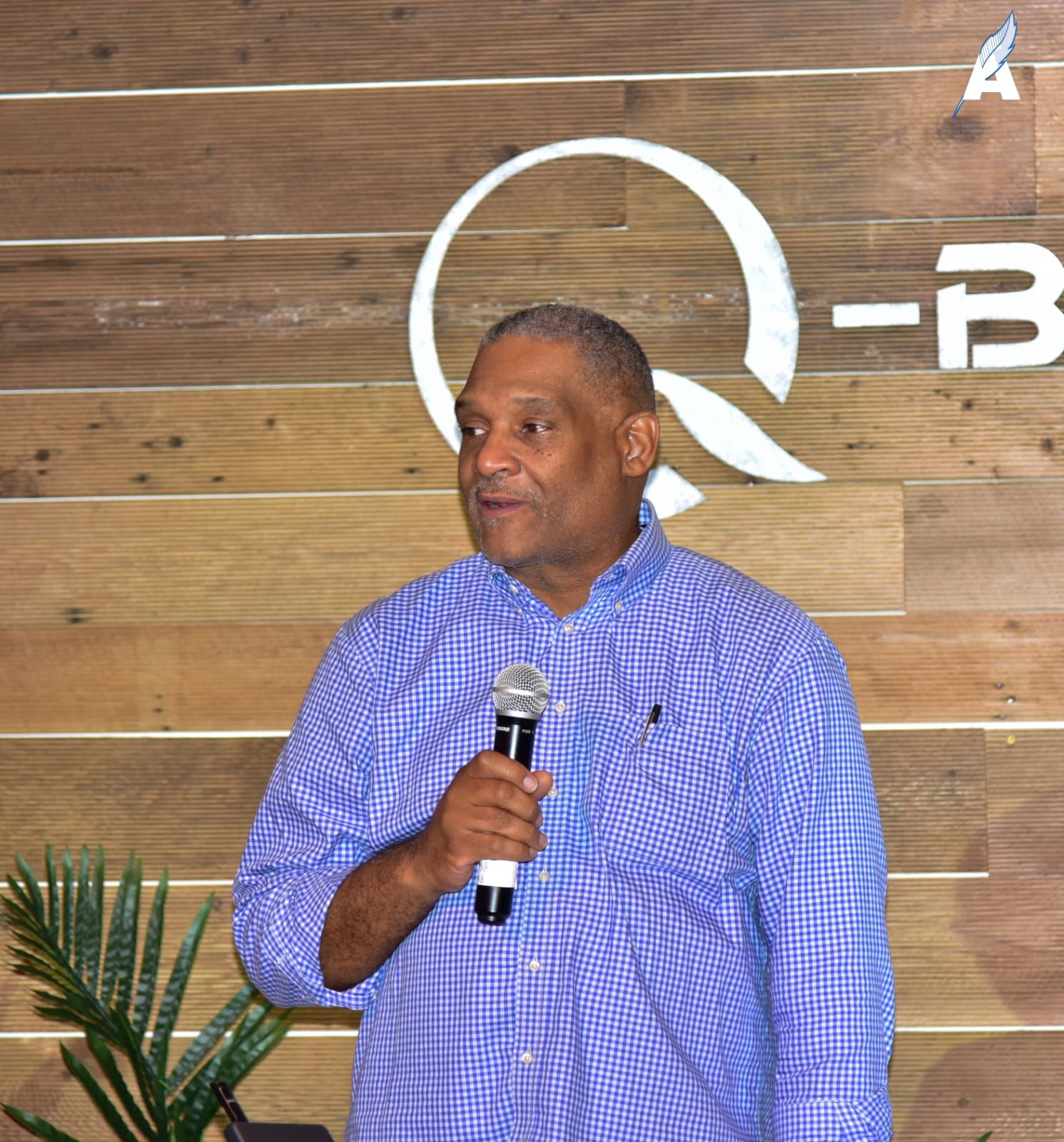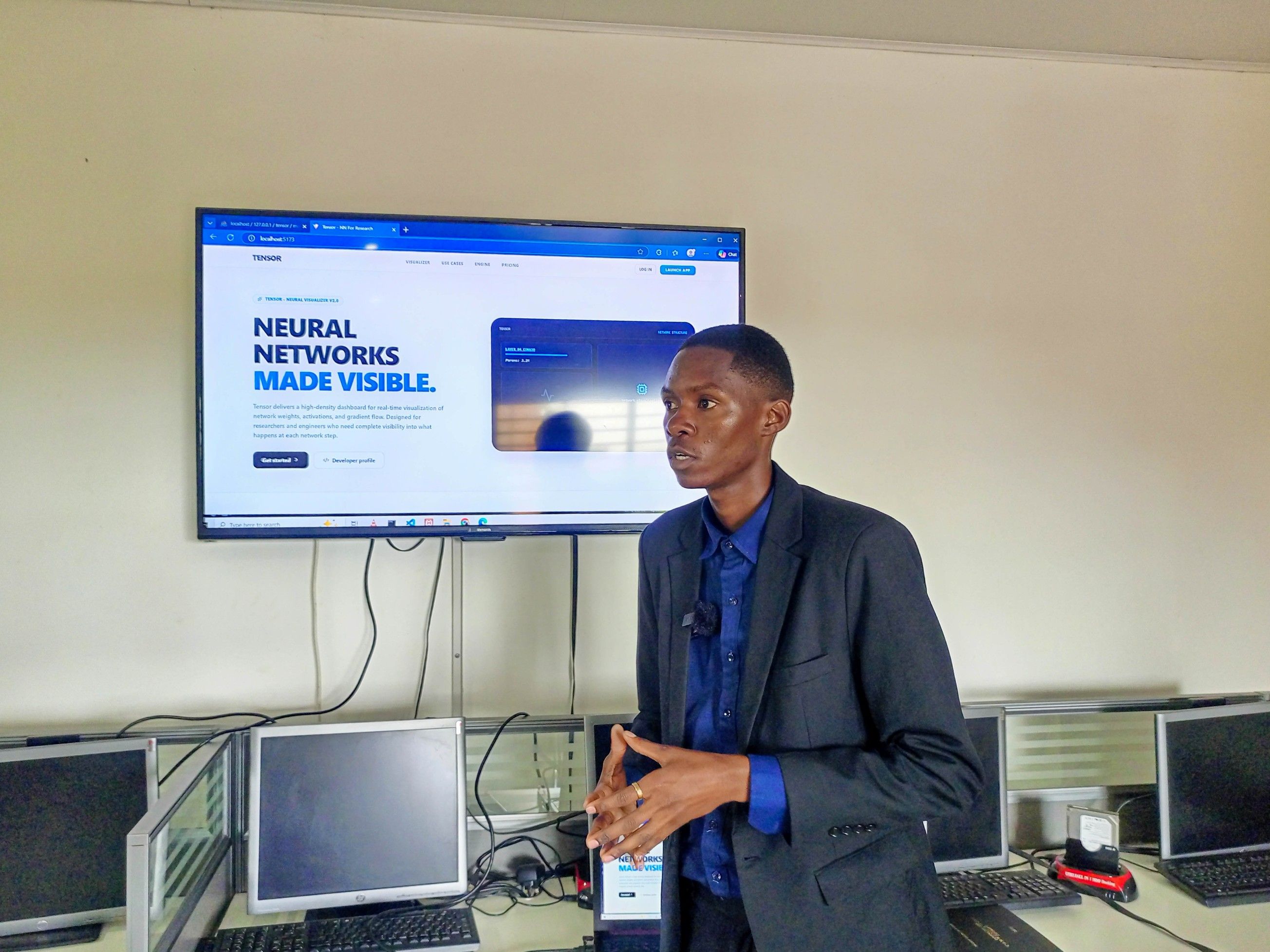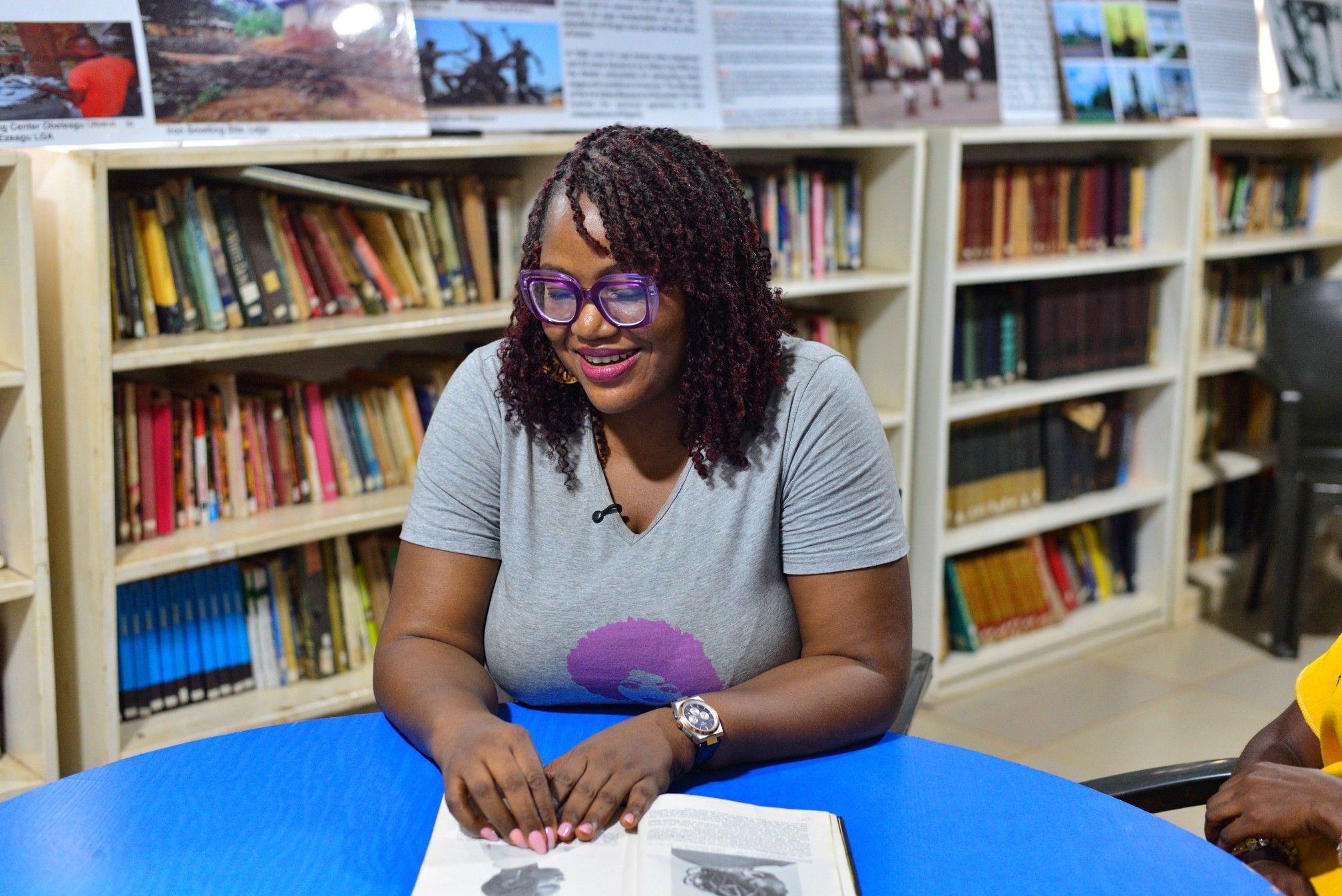On a cold November morning blessed with drizzles in Nairobi, I started my conversation with Yohana Kevin Pella. He was connecting with me from Taraba State in Nigeria.
We’d settled on WhatsApp as the mode of the interview. And we would chat casually, with neither an assigned time nor an obligation to respond immediately.
WhatsApp, because Yohana is deaf and we were about 2,731 miles apart.
Casual chatting without a specific time or immediacy, because Yohana was on the move and busy with errands.
As a journalist and creative writer who reconstructs real-life stories and lays them on pages through pictorial words, patience is a skill I’ve learnt. The art of listening, and intently so, to not only the spoken words but also the way the words are said. The verbal and paraverbal. Leave no stone unturned.
This time, however, I’d have to patiently type on my phone and then listen to Yohana through intently reading his words, and reading between the lines for emotions.
Our chats continued throughout the day. Sometimes, immediate replies flew back in detailed paragraphs, but other times, responses came spaced out. What was important was that the conversation rolled on until we wrapped up that Saturday evening.

***
He woke up in a hospital bed in 1998. He was tired from battling a severe case of measles. He was only five.
Over the past few days, he had been asleep most of the time. The good news was that he was getting better. Measles is a highly contagious respiratory disease that attacks kids. It sometimes comes with dreaded permanent complications like pneumonia, seizures and brain damage. The worst-case scenario – death.
So, it was a great relief for the family when they saw their five-year-old son, Yohana, getting better. The doctor confirmed it.
But Yohana, lying on a small hospital bed in a hospital gown he had worn for days, realised something was wrong. He couldn’t hear.
I perused the National Library of Medicine and read in a case report about sensorineural hearing loss in connection to measles, that an infection with the measles virus can cause an acquired hearing loss in children.
“I couldn’t hear after my recovery,” he wrote to me via WhatsApp. “That was when I realised that I had become deaf.”
He was scared, his little heart thumping against his pediatric patient gown. Confused, he wondered, What is happening to me?
Yohana also worried about his future and education, but above all, what life would look like in his new world, where he couldn’t communicate with others or hear a word of what was said. At the time, his family had little information about deafness. They, too, were thrown into worry and uncertainty. It never helped Yohana, seeing his family members also fearful. It killed the little hope he secretly held in his breaking heart.
While losing his sense of hearing was a big blow and a cruel turn of events for a five-year-old, there was more bad news.
“I also realised the disease had affected my memory. I couldn’t remember stuff I used to know before.”
I read these words with a heaviness gathering in my chest. I imagined how, as an adult, that would affect my mental health. I couldn’t imagine what it did to a five-year-old back in 1998. A child who had been like any other kid in his neighbourhood, able to hear and recall events, was now not only deaf but also losing his memory.
“I could only speak a little,” Yohana added. His few words, to date, when they come, are after hiccups of stammering.
Learning at schools for the deaf
Over time, Yohana, amidst moments of saudade for a past when he could hear, accepted his new reality. While his spirit had initially knelt with the psychological and physical effects of his new deaf identity, he chose to rise again, embrace who he was, after learning he could still live a full life with the right support. He started learning how to lip-read.
“It wasn’t easy at first,” he told me over our chats. “But I gradually mastered it after a lot of practice.”
Could it be that neural rerouting helped Yohana learn lip-reading quicker? Science reveals that when an individual loses one sense, the brain reroutes the neurons initially assigned to the lost sense into a new pathway to give the individual ‘compensatory abilities’, for example, an improvement in the detection of movement.

Yohana also regained his memory.
As they say, life goes on. Yohana had to move on and get an education. He joined a primary school for the deaf, where he learned sign language.
“I also went to a secondary school for the deaf,” he typed. “This helped me learn to sign. Coupled with the newly-developed skill of lip-reading, I was able to proceed with my education and make it to university level.”
How will you hear during lectures? I’m warning you…
Yohana gained admission into Ahmadu Bello University in 2016. He was elated to begin his higher-level education in pursuit of a degree in Education (Economics), but then, a wall stood before him, threatening his dreams.
Ahmadu Bello University was a school for the abled with no provisions for special needs students like Yohana. That wasn’t all. Yohana’s Head of Department was ableist. He doubted Yohana’s ability to go through and complete his university studies while deaf.
“How can a deaf person study in a hearing institution?” He asked. “How will you hear when the lecturers teach?”
Yohana wrote to me, “I assured the school that I was able and eager to learn. But the HoD warned me that if I failed to maintain a 2.0 CGPA, the school would expel me. It broke my heart, as it always does when I see how the deaf are doubted or sidelined. But then, I burned the pain as fuel for an inner drive to work hard and smart to prove the HoD and other ableists wrong.”
While the HoD’s words hurt Yohana, they never broke his resolve. He gathered the courage, determination and will to knock down the wall ahead of him and surpass his given target of 2.0 CGPA.
“My classmates supported me,” he wrote. “They shared lecture notes, and I’d spend most of my time reading.”
In the silence of his own world, all other noises dulled, Yohana leveraged the peace to exert sharp focus on the lecture notes, grasping an understanding. He combined his voracious reading and solo studying with lipreading during class sessions, his determination burning brighter each day.
“At the end of the first semester, I had a 3.0 CGPA,” he typed. Nothing stood in his way ever since.
Four years later, Yohana graduated in 2019 with a second-class upper honours degree in Education (Economics), achieving a 3.50 CGPA. He proved to himself and the world that nothing could stop him when he commits, is focused, and executes. He not only shattered but also surpassed expectations.
Depending on others will not guarantee my future
When he was still a student at Ahmadu Bello University, Yohana noticed a disturbing truth about the employment chances for deaf youths in his community.
He typed, “My personal experience of being constantly doubted, and my observation of how the deaf were excluded in employment and even social events, made me realise that depending on others would not guarantee my future. I had to do something to create opportunities for myself and others, especially the deaf in my community.”
He developed a passion for entrepreneurship.
“Entrepreneurship is a powerful tool for empowerment,” I read his WhatsApp message. “I started planning for my self-employment when I was in uni. I conceived an idea that would chart my path to success in agribusiness; a business plan for establishing a veterinary shop and poultry agribusiness.”

As a training arm of his business, Yohana also envisioned a ‘school’ to train and empower deaf youths in the same line of business.
“Empowerment comes through skills, education and entrepreneurship,” he messaged me. “I want to inspire and support the deaf community to become independent, productive and confident members of society.”
Yohana is currently the founder of Lamma Poultry Farm in Taraba state, Nigeria. His farm not only trains deaf youths in agribusiness but also delivers healthy and ethically raised chicken to families and businesses in Nigeria, providing them with nourishing meals.
“My mission and hope,” he wrote in another message, “is to supply fresh, healthy chicken for the nourishment of families, set up the best veterinary shop in Taraba, and promote economic independence, inclusion and confidence among persons with disabilities.”
The teacher, tech-savvy individual and Mandela Washington Fellow
Yohana also teaches deaf students and is currently teaching at the Government Special Education Center, Mutum-biyu, in Gassol local area, Taraba state, Nigeria. He teaches economics and geography.
“Teaching requires patience, creativity and effective communication methods,” he wrote. “I use sign language, visual aids, and written materials to make learning easy and enjoyable for my students.”
Responding to the question of whether technology has assisted him to have better experiences, Yohanna wrote to me, “Visual alert systems like visual doorbells have helped me. They alert me when someone is at my door by flashing continuously. Videos that use sign language and visual aids, or are captioned, have also helped me bridge the communication gap between myself and others. They also make teaching inclusive.”
Apart from when he is attending official meetings, Yohana doesn’t need an accompanying sign language interpreter.
“Lip reading and an understanding of gestures come in handy,” he wrote. “Some family members and friends have also taken it upon themselves to learn signing. We can now communicate easily. Others write on paper or type on their phones for me to read and write my responses.”

In 2025, Yohana was selected on merit to participate in the Mandela Washington Fellowship for Young African Leaders. His placement was in the leadership in business track at the University of Texas at Austin. He first went through training at Gallaudet University, a premier institution for deaf education, and then the fellowship assigned him sign language interpreters during his six weeks at the University of Texas at Austin.
He currently lives in Taraba, Nigeria, where he teaches the deaf and runs his business, Lamma Poultry Farm.
You can connect with Yohana Kevin Pella on LinkedIn.
***
This story is part of a series Lesalon Kasaine is writing, of the stories of select 2025 Mandela Washington Fellows. Read more about the Mandela Washington Fellowship for Young African Leaders, a program run by the US Department of State. Lesalon was himself an MWF 2025 Fellow.

